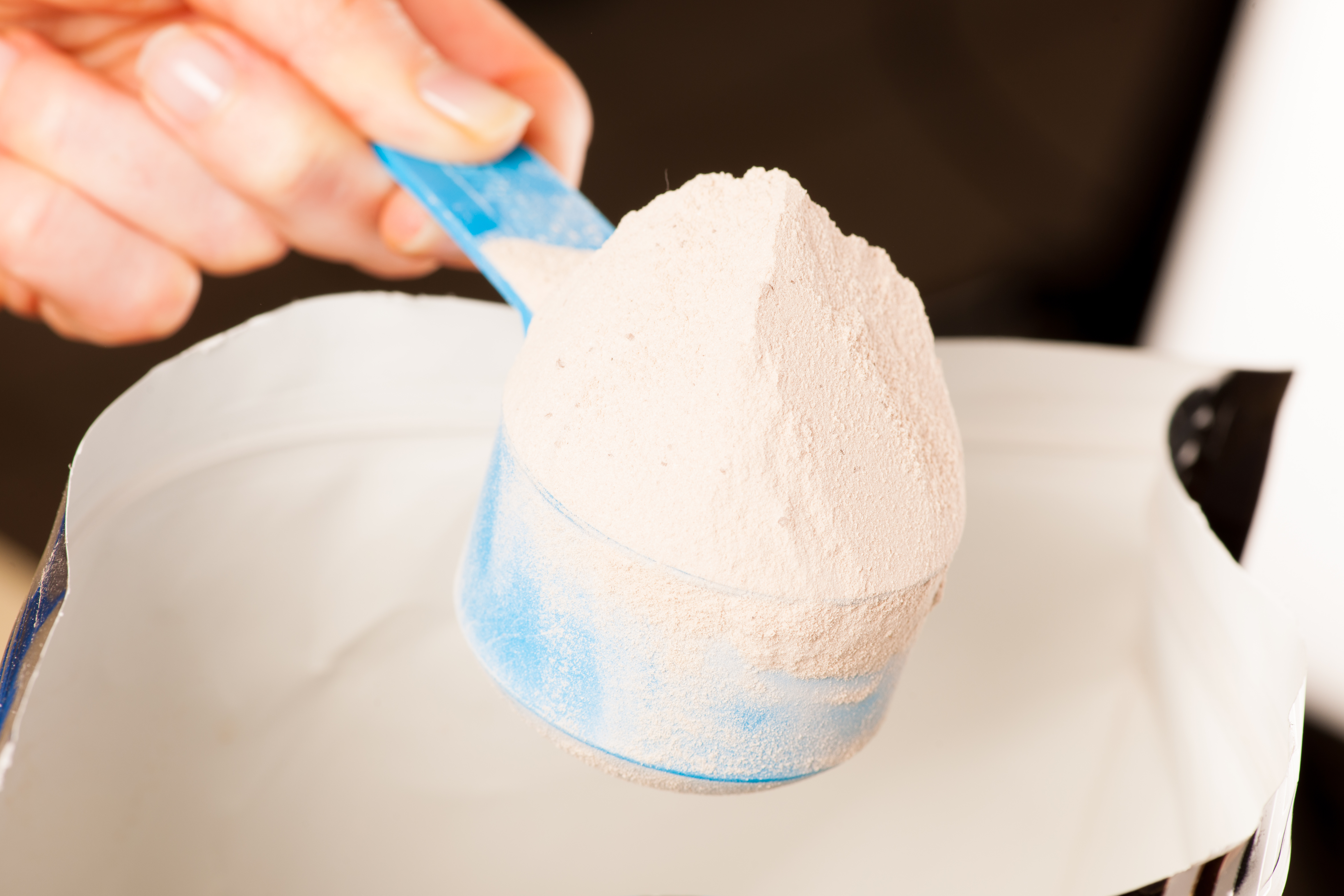The current obsession with protein as the key healthy macronutrient has reached new heights. With no shortage of powders and bars on the market, let’s set the record straight on why too much isn’t always a good idea.
BY: KIM DENKHAUS, MS, RD
Most fitness enthusiasts are aware of the idea that protein is of the utmost importance for muscle repair. Yet many people have no idea just how much they need to consume daily to keep their form.
If only there was a simple answer.
As is the case with most things in life, the art of nutritional needs is highly individualized and dependent on the type of physical fitness activity performed on a daily basis. Obviously, someone performing high intensity Olympic level training will have different dietary needs than someone performing light to moderate training.
So why do we care so much about protein?
Well for starters, every cell in the human body uses protein for growth and repair. Think of it itas the maintenance man of good health! It aids in production of hormones, red and white blood cells, immune fighting antibodies, and provides the nine essential amino acids that the body cannot make on its own.
Protein is also the most satiating of all the macronutrients, giving the body a feeling of fullness. It helps by cutting cravings, speeding up your metabolism, and keeping you energized all day long. Strive to eat protein and carbohydrate combinations throughout the day to maintain balanced blood sugar levels; this will also help curb any sweet-tooth cravings!
Protein is indeed important when you are trying to create a lean, toned physique, and maintaining a balance between protein synthesis and protein breakdown in the body is crucial. This is why dietary guidelines have been created to help steer us in the direction of healthy limits. Try this simple calculation to help you discover your dietary protein needs. Remember, a serving size of it is about 3 to 4 ounces, the size of a deck of cards, or the size of your palm.
The average dietary protein needs for a healthy adult is 0.8 g / kg of body weight. This increases 1.2 to 1.4 g/kg for endurance athletes, and 1.2 to 1.7 g/kg for body weight and strength athletes.
So what are some of the best ways to get your protein fix? Here are a few tips to consider:
Eat high-quality, whole-food sources of protein.
A key factor to consider when revving up for a workout is protein quality. Aim to eat a wide variety of quality absorbable sources such as:
- Egg
- Milk
- Cheese
- Yogurt
- Fish
- Poultry
- Meat
- Nut butters
- Peas
- Soy
- Rice
- Beans
While protein is important for our overall health, let’s not forget the importance of eating a well-balanced diet. That includes protein, carbohydrate, and fat, along with all your essential vitamins and minerals.
Don’t go overboard.
If we consume protein beyond what the body needs, this can result in pricey pee! Aim to keep your protein intake between 10 to 35% of your daily caloric intake. Based on a 2000 calorie diet, that would equate to 50 to 175 grams of total protein per day. Excessive protein intake can have adverse effects on overall health, such as liver and kidney damage. However, the research on protein toxicity remains inconclusive. Caution should also be used with amino acid or protein supplements that contain a variety of impurities and artificial sweeteners.
Evaluate if powders and supplements are worth the cost.
Research suggests that protein supplementation may provide some benefits aiding in protein synthesis and muscle recovery. However, only a small portion may actually be absorbed, which is highly dependent on the quality of the supplement, and metabolism of the individual consuming the supplement.
Protein powders can be quite pricey, consider saving your hard earned cash, and opt for Mother Nature’s protein-rich, whole-food sources that supply all of the body’s amino acids needs and more. For some athletes, however, a high-quality protein supplement may serve as a practical way to optimize recovery and meet their daily needs.
If a supplement company makes overzealous claims and promises speedy results, it is probably too good to be true! Remember, the supplement industry is loosely regulated, and supplement manufacturs are not required to obtain FDA approval prior to marketing their products. Often times, the the risk is not worth the reward. There are plenty of rogue supplement distributors out there selling substandard products, so buyer beware! Do your homework, and look for the label “USP Verified Dietary Supplements,” “NSF,” or “Consumer Labs,” which are all independent third-party certification programs that verify the quality and validity of supplement products.
Keep it all balanced.
Fueling your body optimally during and after exercise will have a profound impact of your athletic performance. Eating a balanced meal with the appropriate amount of protein will allow you to train harder while boosting your recovery time. Along with carbohydrates, fluid, and electrolytes, protein is an important part of muscle recovery, particularly if you participate in high intensity fitness training such as resistance work and interval sessions that tear down muscle tissue.
Remember that what you eat is just one part of the equation. Finding a balance between physical activity, adequate sleep and recovery time, and optimal hydration and nutrition intake is the key to success!
Kim Denkhaus, MS, RD is a Registered Dietitian Nutritionist with her private practice based in Los Angeles and San Francisco. In a modern-day society focused on convenience and fast-paced lifestyles, Kim is on a mission to help people reconnect with food in a sustainable, healthier way that will help them appreciate where their food comes from and empower them to use use whole foods to fuel and nourish their bodies.


I drink protein supplements and amino acid supplement to help me build my muscle. This is also the way to complete my lack of protein.